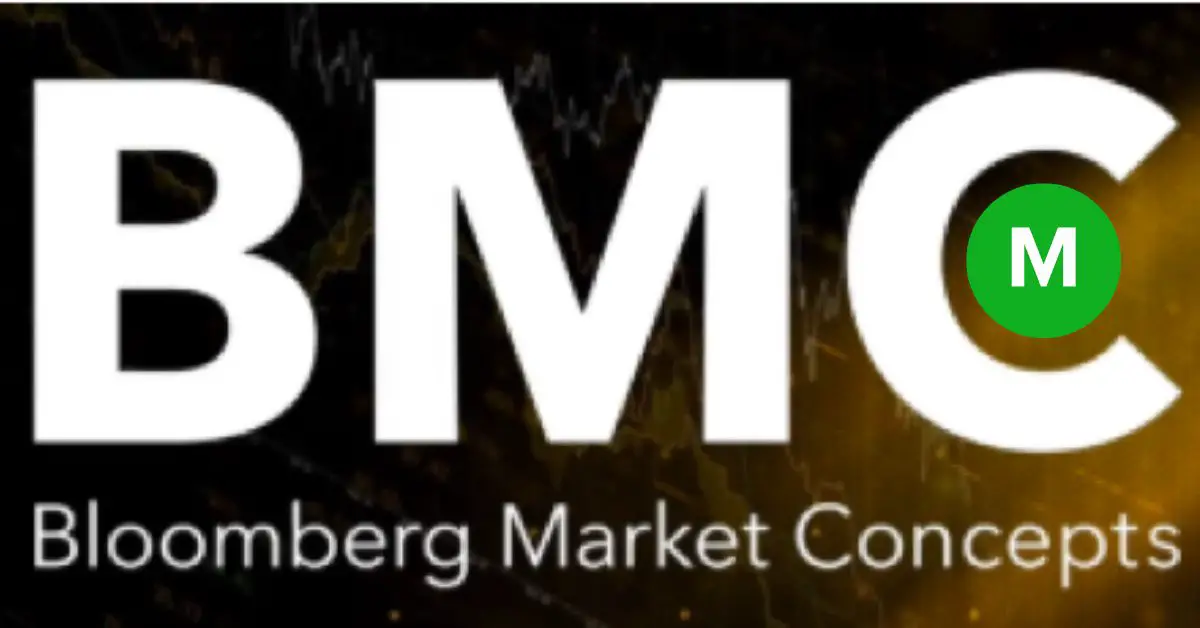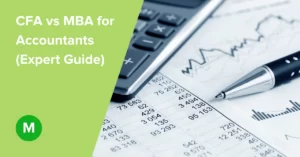Is Bloomberg Market Concepts Worth It? (Deep-Dive)
Some of the more versed financial market participants are certainly familiar with Bloomberg, a world-famous financial software, data, and media company. The gold standard of financial market data analysis comes in the form of a Bloomberg terminal, the $ 24’000 per year ultimate tool for professional investors, analysts and traders. Around 325’000 people are using a Bloomberg terminal daily.
Key points
- Bloomberg Market Concepts is a self-paced course, which typically takes 8-12 hours to complete. The goal is to deepen your learning on financial markets generally.
- The course is generally available online for a student rate of $ 149 and the corresponding professional rate of $ 249. It is also widely available through the well-known, and expensive, Bloomberg Terminal at no additional charge.
- The course is divided into four modules: Economic Principles and Indicators, Currencies (Foreign Exchange), Fixed Income, and Equities.
- The modules can be conveniently completed in any order, and each module includes a quiz at the end to test students’ knowledge.
- Overall, Bloomberg Market Concepts, in short BMC, is indeed a very helpful and highly informative course. It is advisable for those of you out there who want to learn about the basics of finance and financial markets in general.
Bloomberg Market Concepts s a self-paced course, which typically takes 8-12 hours to complete. The goal is to deepen your learning on financial markets generally. The course is generally available online for a student rate of $ 149 and the corresponding professional rate of $ 249. It is also widely available through the well-known, and expensive, Bloomberg Terminal at no additional charge.
1. Economic Principles and Indicators
2. Currencies (Foreign Exchange, in short FX)
3. Fixed Income
4. Equities
The course is free to register for and access, and it does not require any previous knowledge or experience in finance.
The modules can be conveniently completed in any order, and each module includes a quiz at the end to test students’ knowledge. Overall, Bloomberg Market Concepts, in short BMC, is a helpful and informative course for those who want to learn about the basics of financial markets. However, because it is self-paced, some students may find it difficult to stay motivated and disciplined in working through the material.
Whether its worth entirely depends on the student and the level of financial market education they aspire to. With Bloomberg’s name behind the course, surely the certification will be worth the money even though some of the concepts can be taught from specialised financial market books. As such, one needs to consider all aspects and decide for themselves whether it’s worth it.
Is it worth getting Bloomberg certified?
Any certification is usually a good thing. It shows dedication and interest in a certain topic. It will also show that the student invested the necessary time to be able to pass the quiz for each module. It is similar but less time-consuming and costly than the CFA exam, which is a 3-part gruelling financial qualification which is still very much sought after and the benchmark for anybody interested in a job in finance.
Given the relatively low cost, especially for students, and the tolerable time commitment it does make sense to get the BMC certification in order to taste one’s liking for finance in general. Worst, case you decide this is not for you in which case it was a better certification than to embark on the journey to become a CFA charter holder.
Is the BMC course good?
The Bloomberg Market Concepts tool can be accessed by either a Bloomberg Terminal or the Bloomberg for Education website. The course, through its modules, provides you with the main building blocks in helping you understand the basic concepts of financial markets. If you are also equipped with a Bloomberg terminal, the course also helps you understand the basic Bloomberg keys and pages where you can access critical financial market information. After all, Bloomberg is selling its terminal to potential future users, clever really.
The Bloomberg Market Concepts Online Training Program is designed to give non-finance and non-economics people a basic understanding of finance and economics. The course covers economic indicators, currencies, and equities, and will take around 8-12 hours to complete. Although the course is helpful for those with no prior knowledge of finance or economics, it does unfortunately not cover more advanced topics such as commodities, options, and futures.
We have analysed a few reviews for you and it is pretty obvious that it gets high marks within junior people who have finished studying in order to get a basic understanding of financial markets but primarily to be able to use the certificate as a distinguishing element of their CV’s. For ordinary students, it would appear, that the demand for such a certificate is rather low. The cost coupled with an uncertain outlook about which industry or sector one wants to start their career in seems to be the main reason.
What elements does Bloomberg market concepts teach you?
The self-paced learning course is structured in 4 building blocks in order to build the knowledge bank systematically.
The four building blocks are Economic Indicators, Currencies, Fixed Income and Equities.
Economic Indicators lead you through the world of an economist’s world lens. The course teaches you pretty much everything about what economic indicators are being published and what they generally mean. Furthermore, it will help you compare good and bad qualities of generally publicly available economic data and what they are. For real financial market application, it will also be explained how professional forecasters use economic indicators to anticipate certain inflexion points in markets.
In terms of Currencies (Foreign Exchange), you will explore the history and mechanics of today’s very popular currency markets. The course will help you frame and analyze the main drivers of foreign current valuations and their implications for making investment decisions. In this module, you will also learn the historical context and very important role of global central banks and their mandate to target inflation in order to provide the necessary stimulus for economies to find their path towards maximum employment. You will also be shown how professional investors and businesses are affected by currency markets and how they manage volatile and unpredictable currency risk in general.
In the wild world of Fixed Income, which is my old stomping ground, you will discover how the mighty bond market morphed into the largest and most complex financial market on the planet. You will also learn how overall debt markets generally serve a vital public purpose. In helping you understand basic bond terms, you will explore how “yields ” compare in a global debt market context. After this particular module, you will be able to accurately describe how government bond yields are the benchmark by which many other investments are measured.
You will learn how the internationalisation of bond markets through its vigilantes are disciplining in governments who are not fiscally prudent. This is generally achieved by worsening financing conditions through higher government debt yields, making it unsustainable to keep financing. More importantly, you will be shown why, when and how central banks make interest rate decisions. The somewhat mathematical world of bond valuations will be broken down and you’ll discover how inflation, credit, and central bank controlled short-term interest rates individually affect bond prices globally. Interpreting the consequences of the various yield curve shifts will be one interesting case study when looking at the nature of curve inversions which is currently the case in the US bond market.
Most people are more familiar with Equities. The main areas to cover in this final module will be how equity index performance is being derived from the performance of its constituent individual stocks. Students will then go through the history books and more philosophically analyse capitalism and why capital ownership is valuable. In general, you will also identify why equities are typically more volatile, and riskier than bonds.
After completion of this section, you will be able to describe the multi-step equity valuation process and its strengths and weaknesses. Furthermore, one will be confident in putting yourself in Warren Buffet’s shoes and try assessing fair value for stocks given their future earnings growth potential and relative valuation to broader markets. This part especially is very useful to re-visit from time to time.
What percentage do you need to pass Bloomberg market concepts?
There is no percentage of correct answers in order to pass the exam. As in typical online exams you will be asked to answer questions about what you’ve just learned. The good news is that there is no pass mark and that you will be able to see your score immediately.
This is somewhat at odds with the CFA programme where there is certainly a pass mark although it is only estimated what it is (around 60%) as you are ranked vs. all the people who are taking the exam.
Once have put in the work and completed the BMC you of course receive a PDF certificate in your Inbox. Congratulations. Hang it on the wall!
Is a BMC certificate good?
Any certificate is useful, no matter what profession you are interested in. A certified course validates the effort, drive and eagerness to learn a certain subject. As such, it is good to have items on your resume when applying for relevant jobs.
It is, however, no guarantee of obtaining a job, especially not in finance where competition is fierce. Many finance-related jobs, expect high-class education and top-notch grades. Further, relevant previous experience through internships as well as any extracurricular activities which stand out are the distinguishing factors of landing an entry-level position. The filtering and interviewing process is tough. In that sense, having a certificate is a good indication of your motivation but is by no means a unique feature for someone to stand out.
How long does it take to be Bloomberg certified?
The process usually takes 8-12 hours of self-study in total. Now, if you are eager this can obviously all be done within a day. That is a bit too fast in order to really grasp all aspects and learning of the different modules. I would suggest doing a maximum of 2 hours a day in order to properly digest the knowledge. This will help you long term as you will remember the most important points for longer.
With a 2-hour rhythm, this gives you roughly 4-6 days to finish the course, so overall a week should be more than enough in order to be certified. After completion, the participant will receive a PDF certification, which shouldn’t take more than a few days.
How long does Bloomberg certificate last?
The educational content of the Bloomberg Market Concept is primarily aimed to build the foundation of financial market knowledge. The certificate does not have an expiry date attached to it as it merely represents that you have gone through the process and acquired the knowledge.
Conclusion
In conclusion, the Bloomberg Market Concepts course is a helpful and informative introduction to the world of finance for those with little to no prior knowledge. The course is self-paced, so it can be difficult to stay motivated, but it is reasonably priced and available for free through the Bloomberg Terminal.
The course covers the basics of economic indicators, currencies, fixed income, and equities, and includes a quiz at the end of each module. Upon completion, participants will receive a PDF certificate. While the BMC certificate is not a guarantee of landing a job in finance, it is a good indication of motivation and interest in the subject. The course can be completed in as little as a week, but it is recommended to take no more than 2 hours per day to absorb the material properly.







